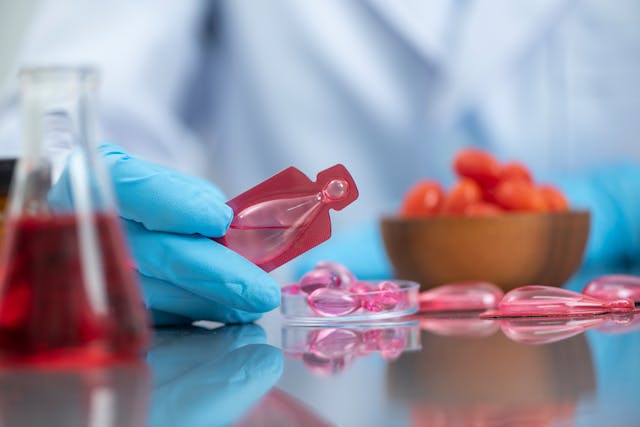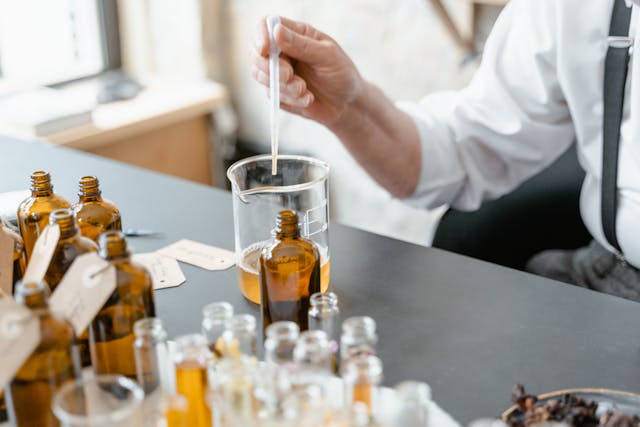Related Blogs

Image: Source
Moisturizers: The Skin Care Essential
You might wonder—is my face moisturiser just making my skin soft, or does it actually do more?
The truth is, moisturisers do much more than just hydrate. They help lock in moisture, protect your skin from dryness, and soothe irritation like flaking or itching. A good moisturiser also supports your skin’s natural barrier, keeping it healthy and balanced.
Let’s break down how moisturisers work and why they’re essential to everyday skincare.
What Is a Moisturizer?
A moisturizer is a skincare product that helps your skin stay hydrated, soft, and smooth. It is available in different forms like creams, lotions, gels, or balms. The main work of a moisturizer is to lock in moisture and prevent water loss from your skin. But it also does more — it protects your skin’s natural barrier, shielding you from dryness, irritation, and environmental damage like wind or cold weather.
Let’s break down the types of moisturizers and when to use them:
1. Creams
Thicker and richer than lotions, creams are great if your skin feels dry or flaky. They are one of the best moisturizers for dry skin. They lock in moisture and work best for night-time routines or colder months.
2. Lotions
3. Gels
Gels are water-based and feel cool on the skin. They’re ideal for oily or acne-prone skin because they hydrate without clogging pores. There are oil-free moisturizers available on the market. However, finding the one best suited for your skin is important.
4. Balms and Ointments
Understanding Skin and Moisture
Your skin is your body’s first shield, and to stay protected, it needs the right amount of moisture.
- The top layer of your skin is called the stratum corneum. It keeps water in and blocks harmful things out.
- Dry air, hot water, soaps, and ageing can damage this layer. This causes your skin to lose water. The process is called transepidermal water loss.
- Water also helps your skin shed dead cells. Without enough water, skin looks dry and dull.
- The skin makes natural moisturizing factors (NMF) like amino acids and urea. These help keep moisture locked in.
- If your skin loses too much water, the barrier becomes weak. Thus leading to dryness and irritation.
- A good moisturizer keeps your skin hydrated, smooth, and healthy.

The 3 Key Functions of a Moisturizer
Moisturizers are more than just skincare products. They play an active role in protecting and improving your skin. Understanding how they work through occlusion, humectancy, and emolliency can help you choose products to meet your skin’s needs.
1. Occlusion
2. Humectancy
Humectants help draw water to the skin from the air and deeper skin layers. They are ideal for dehydrated skin that feels tight or looks dull. These ingredients hydrate the skin by increasing its water content. Key humectants include glycerin, hyaluronic acid, urea, and panthenol.
3. Emolliency
Types of Moisturizers for Different Skin Needs
| Skin Type | Ideal Moisturizer Form | Key Ingredients |
| Dry | Creams or balms | Ceramides, shea butter glycerin |
| Oily | Gels or light lotions | Hyaluronic acid, glycerin |
| Sensitive | Fragrance-free creams | Aloe vera, chamomile |
| Aging | Rich creams | Retinol, peptides |
How Moisturizers Help with Skin Hydration
Many believe that hydration and moisturization are the same. However, hydration and moisture must not be confused.
- Hydration refers to the presence of water in your skin.
- Moisture refers to substances that keep water inside.
Drinking water is essential, but without water retention, skin stays dry. Moisturizers lock in hydration, support enzyme activity to shed dead cells & reveal fresh, soft & healthy-looking skin.

Image: Source
Common Myths About Moisturizers
Myth 1: Oily skin doesn’t need moisturizer.
Truth: Oily skin can be dehydrated. Using the right moisturizer will help balance the oiliness.
Myth 2: Moisturizers make your skin sluggish. Truth: Moisturizers support & strengthen the skin’s natural barrier, helping it function optimally.
Myth 3: Natural ingredients are always better.
Truth: Not necessarily. Some natural ingredients can trigger irritation. The key is quality and safety, not just “natural.”
Finding the Right Moisturizer for You
Your skin needs to change with the weather, age, and lifestyle. Here’s how to pick the best moisturizer for your skin:
- Patch-test any new product.
- Check the label for good ingredients (like ceramides, glycerin, and shea butter).
- Avoid heavy fragrances and harsh chemicals.
- Apply right after bathing, while the skin is still damp.
Also, moisturizers are important in managing skin conditions like eczema, xerosis (very dry skin), and atopic dermatitis. Doctors often recommend specific formulas for people with such issues.
Healthcare teams, including dermatologists, nurses, and pharmacists, work together to help people choose and use the right moisturizers. Moisturizers aren’t just for comfort; they are a key part of treatment plans.
Conclusion
Moisturizers are more than just skincare products. They help strengthen the skin barrier, improve hydration, and prevent worsening of skin conditions. Understanding the ingredients and how they work, as well as occlusives, humectants, and emollients, can help you choose the right product. Daily use of moisturizer helps skin stay soft, protected, and healthy.
Whether managing a condition or just looking to feel better in your skin, a good moisturizer is a simple, powerful product.


